Work dimensions: 49 x 79 cm
Measurements with frame: 59 x 89 cm
Technique: oil on canvas
Period: 1950s
Beautiful painting depicting a group of four ducks at rest.
Josef Woldemar Keller-Kühne (23. April 1902 Munich – 9. March 1991 Miesbach)
Life and Work
Josef Woldemar Keller-Kühne studied at the Munich Academy of Fine Arts from 1921 to 1930. His teachers at the time included Heinrich von Zügel and Angelo Jank. During semester breaks he traveled to Austria, Hungary, France, Latvia and Finland.
From 1922 onwards Keller-Kühne was represented with paintings at exhibitions in Munich. Even then, his favorite subjects were animals. In 1925 he was offered a professorship in Budapest, but he refused it. In the summer of 1926 Keller-Kühne went to Paris with Daisy Campi and Hermann Euler.
In 1930 Keller-Kühne completed his academic education. In the academy certificate drawn up by his teacher Heinrich von Hügel we read among other things: "The undersigned presents to his former student Keller-Kühne the certificate that he managed to bring his exceptional talent to the highest level
In 1931 Keller-Kühne joined the NSDAP (membership number 530,791). On 6 July 1931, eight works by Keller-Kühne were destroyed in the fire at the UN. On 23 April 1936 Keller-Kühne married Maria Stemplinger in Munich. From the marriage three children were born Tilman, Imma and Florentine.
From 1942 onwards Keller-Kühne worked as a façade painter in Greece, Poland and France. In 1944 the apartment (Adalbertstr. 78) and the studio (Adalbertstr. 57) in Munich were destroyed by an attack. Keller-Kühne subsequently moved with his family to Großschwaig (Miesbach district) and rented the historic blacksmith shop in Bach at the end of 1944.
In 1951 Keller-Kühne moved with his family to Harzberg (Miesbach), where he lived and worked ever since. He devoted himself more to hunting and continued to work as a painter. In addition to animal motifs, landscapes, city views and portraits were created.
Josef Woldemar Keller-Kühne was a member of the Munich artists' cooperative.
Exhibitions
1922: Represented for the first time at the “Munich Art Exhibition” in the Glass Palace (with the oil study “Cows” (catalogue number 890)). With the exception of 1926 and 1929, Keller-Kühne was represented at every “Munich art exhibition” until 1931, usually with several works. In 1927 and 1928 he exhibited at the “Munich Secession” and in the remaining years at the “Münchner Künstlergenossenschaft (MKG)”.
1929; Artistic Association of Munich, Munich
1931-1933: Participation in the Munich art exhibitions, which were held in the German Museum in Munich due to the fire in the Glass Palace
1932: Participation in the “Munich Art Exhibition” (Kunstpalast Düsseldorf)
1933: Participation in the exhibition “Special exhibition of the Munich Artists' Cooperative to promote donations to national work and winter aid” (Munich Artists' Cooperative, Munich)
1934–1935: Participation in the “Great Munich Art Exhibition” (Neue Pinakothek, Munich)
1935: Participation in the “Artists of Munich” exhibition (Prussian Academy of Arts, Berlin)
1935: Special exhibition on Keller-Kühne at the Nuremberg City Gallery (with a total of 56 works)
1936: Participation in the exhibition “50 years of landscape painting and portrait sculpture in Munich” (Neue Pinakothek, Munich)
1936: Participation in the exhibition “50 years of landscape painting and portrait sculpture in Munich” (Neue Pinakothek, Munich)
1937: Participation in the “Annual Munich Exhibition” (Neue Pinakothek, Munich)
1937: Participation in the exhibition “Figure and composition in images and on the wall” (Neue Pinakothek, Munich)
1937: Participation in the exhibition “Work in art” (Munich Exhibition Park)
1937: Participation in the “German Art” exhibition (organized by the Nazi cultural community, Lichtentaler Allee exhibition building, Baden-Baden)
1937: Participation in the “Animal Art Exhibition” (organized by the Nazi Cultural Community, Tiergartenstrasse exhibition building, Berlin)
1938: Participation in the “art exhibition” (organized by the Nazi community Kraft durch Freude, Hamburger Kunsthalle)
1938–1944: Participation (with a total of 18 paintings) in major German art exhibitions at the House of German Art (Munich). Three paintings were purchased by Adolf Hitler (“Nuss Jay” (1938), “Calves in the Stable” (1939), “In Fire Position” (1940) and one by Martin Bormann (“Zenzerl”).
1938–1942: Participation in the “Munich Art Exhibition” (Maximilianeum, Munich)
1941: Participation in the exhibition “The artists of Munich experience the war” (Munich Office of Culture)
1943: Participation in the exhibition “West German Artists – Munich Designers” (Munich Municipal Gallery)
Early 1944: participation in the exhibition “German Artists” Keller-Kühne was represented here with the painting “Manrico” (horse's head of the famous show jumper “Manrico”).
June–July 1944: Participation in the Salzburg exhibition (exhibition expanded to the previous exhibition in Wroclaw). Keller-Kühne was represented with six works, including the painting “My Wife” for which he received the Leibl-Sperl Prize of the city of Rosenheim in 1943.
1982: Anniversary exhibition in Miesbach, on the occasion of the 80th birthday
Press
1926: Art Prize of the City of Munich for the painting Bull in the Stable
4 July 1943: Leibl-Sperl Prize of the Rosenheim Art Association for the painting My Wife
1990: Culture Award of the city of Miesbach
Acquisitions
1926: The Munich City Gallery purchases the painting “Bull in the Stable”, which receives the city's art prize in the same year. Subsequently the house purchased eleven other paintings by Keller-Kühne: “Pußta”, “Goats”, “Chicken Coop”, “Turkeys”, “Near Brannenburg”, “Farmer Plowing”, “Roe Deer”, “Near Würzburg”, “Auf the pasture”, “Grummeternte” and “Goat with cat”.
1930: The Bavarian State Painting Collections acquires the painting “The Pigs”.
1953: first of numerous purchases by the Ministry of Agriculture.


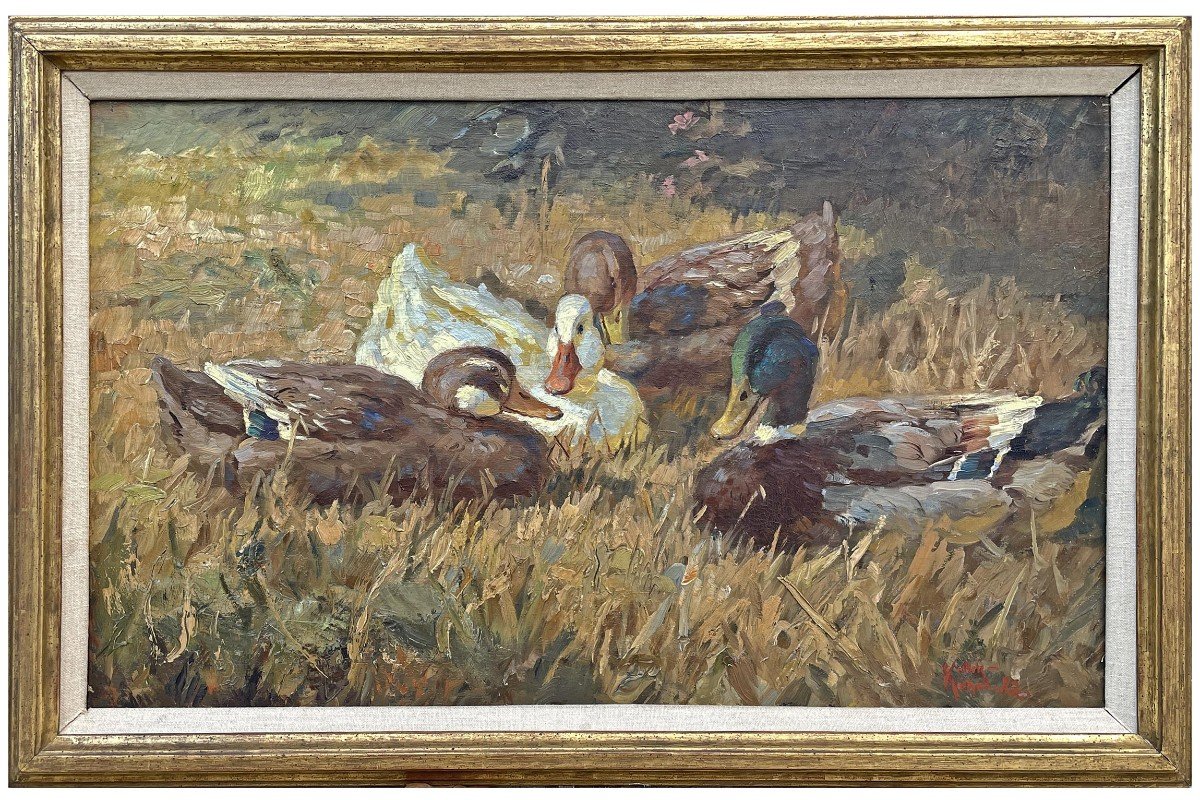
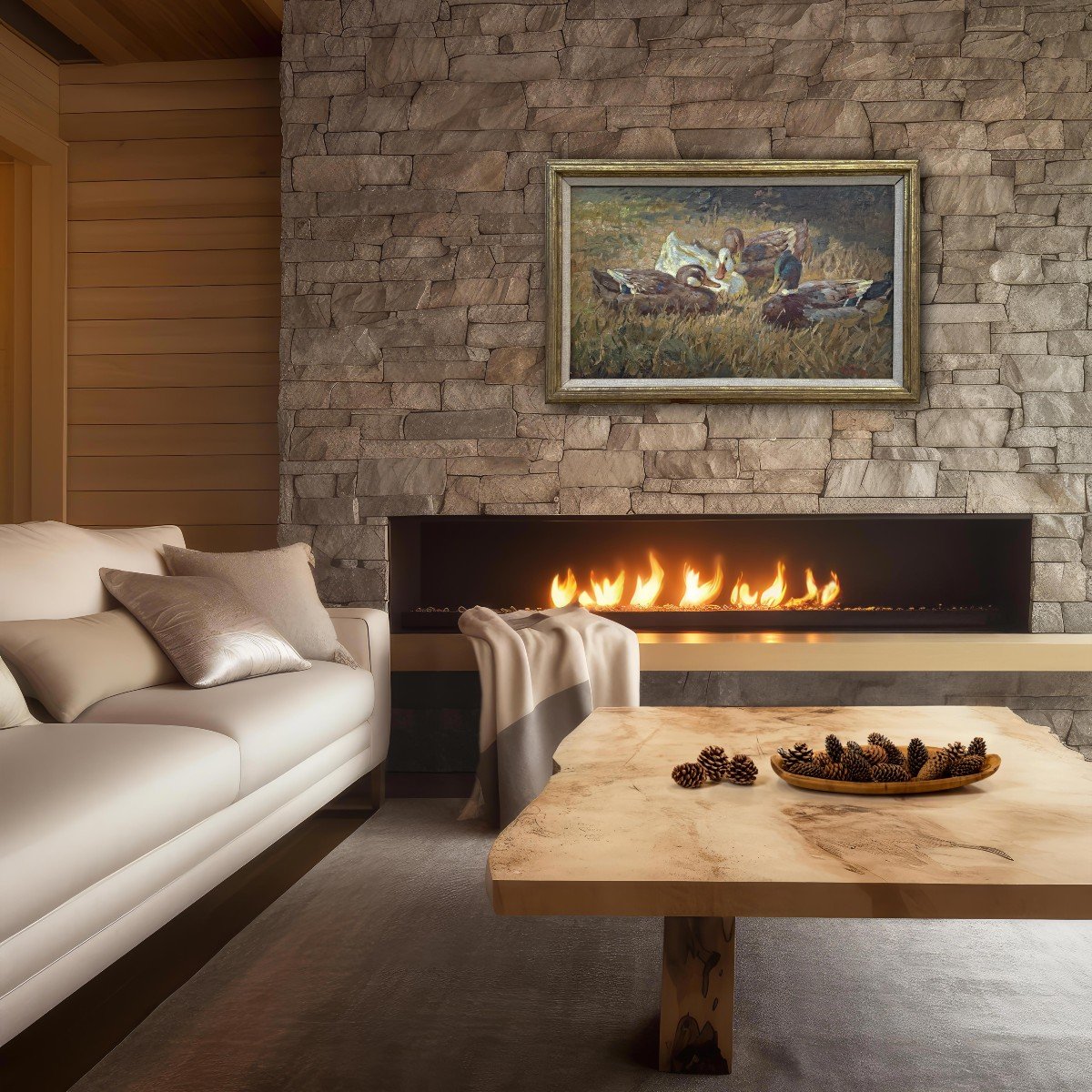
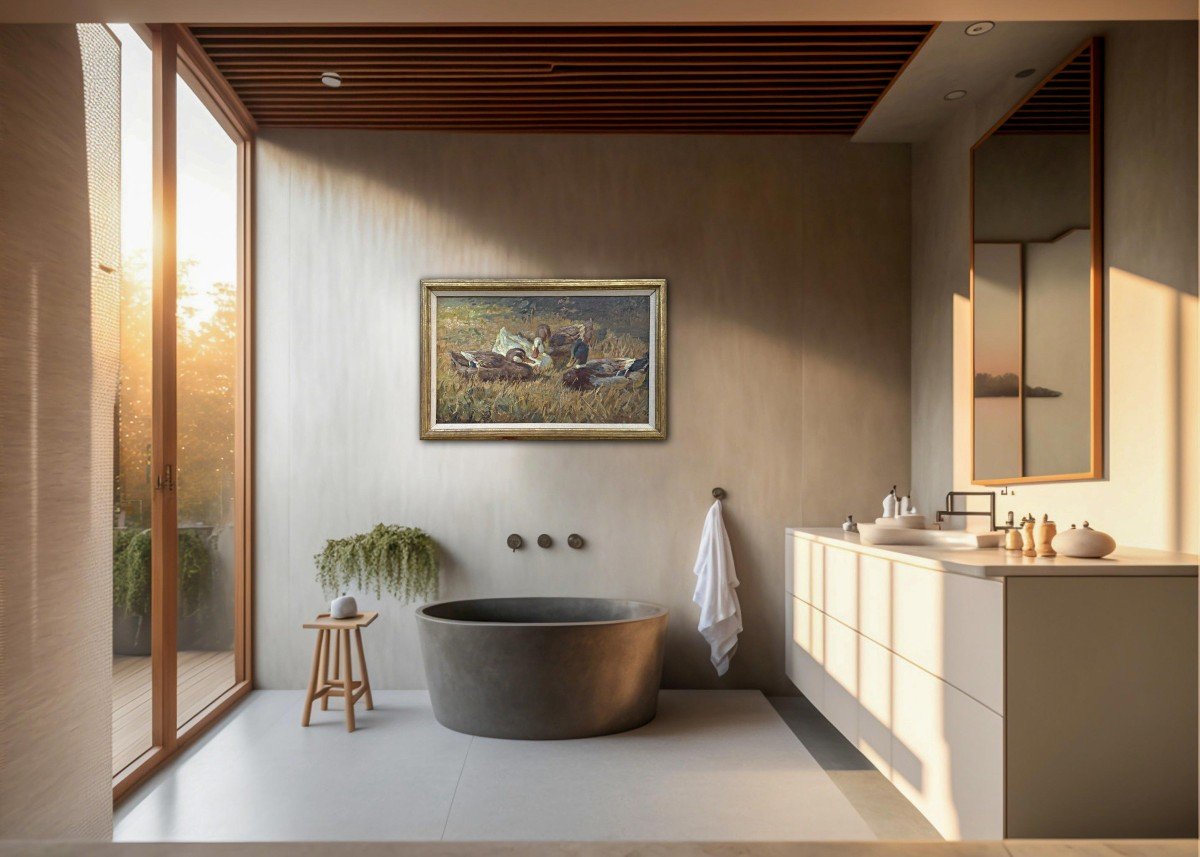
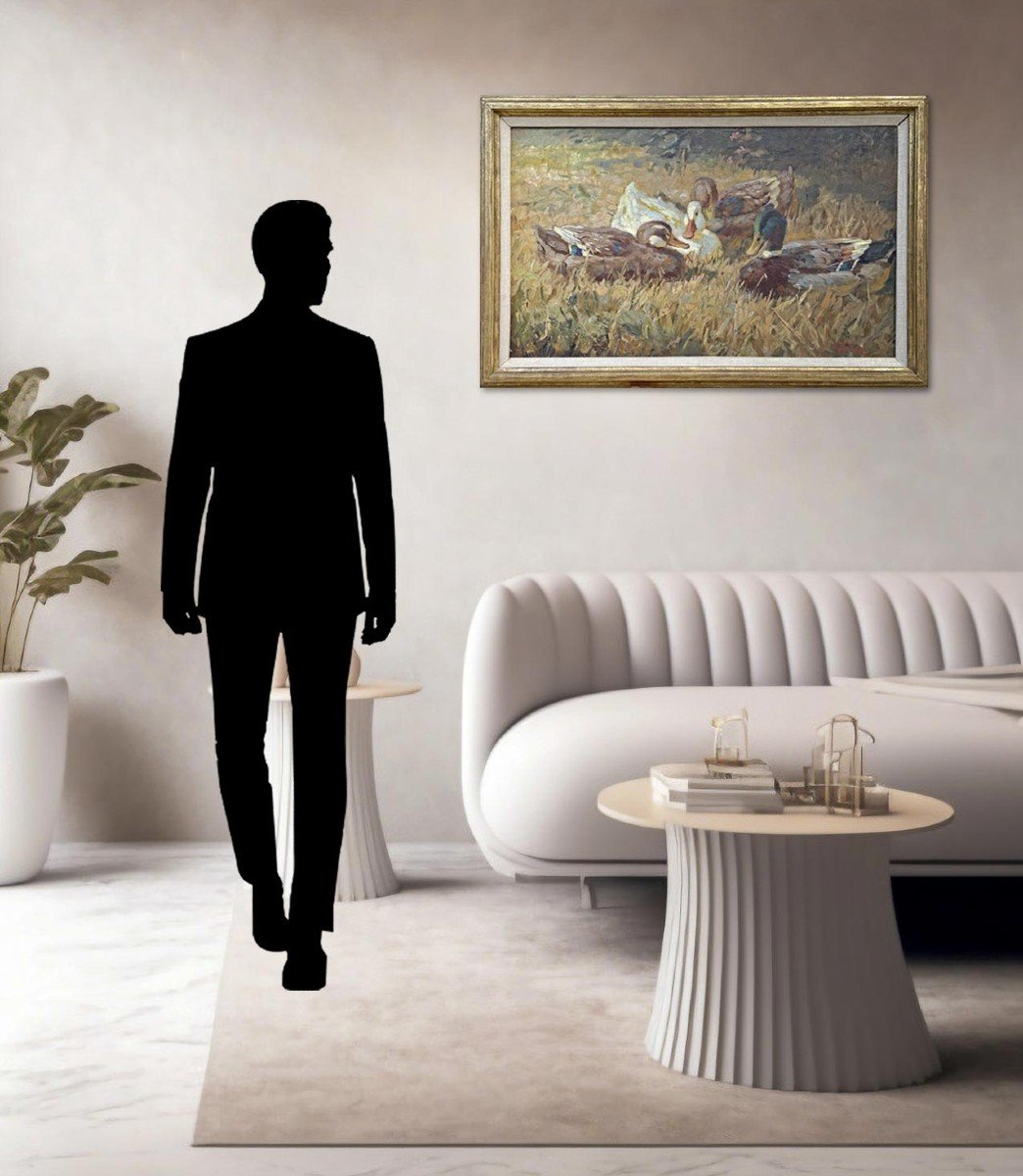
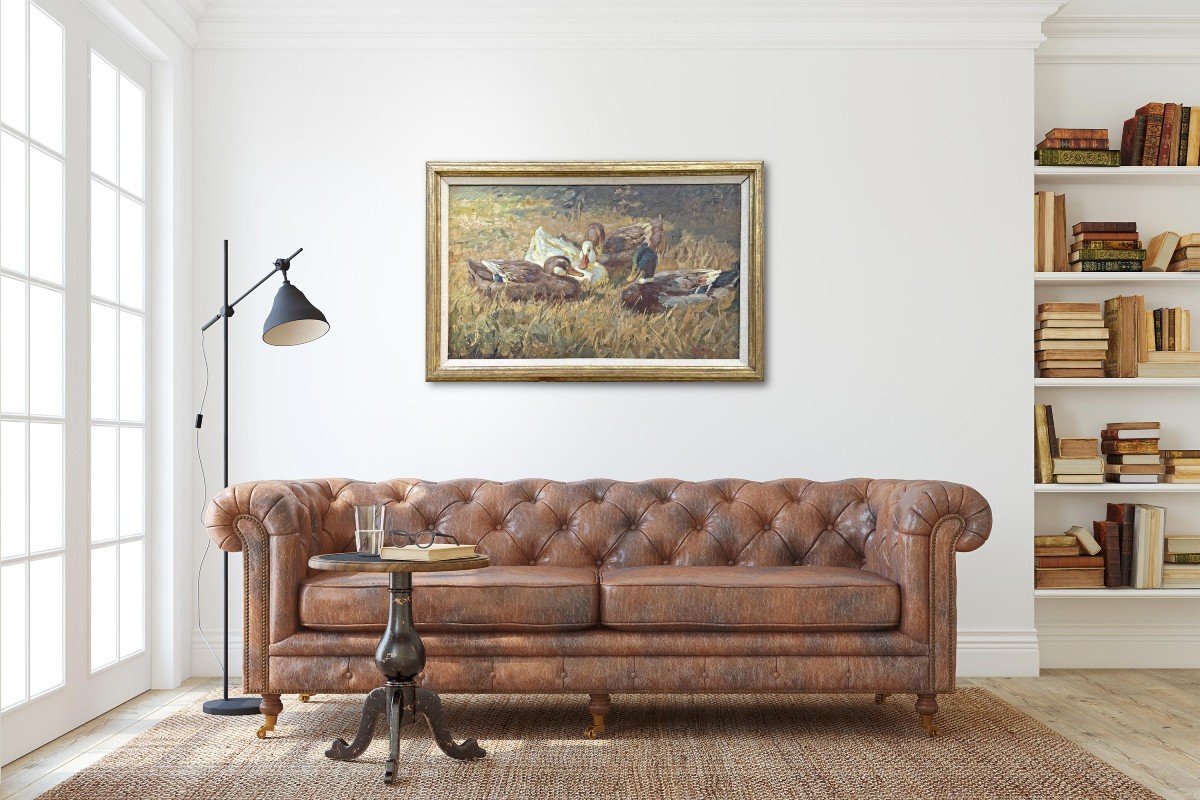
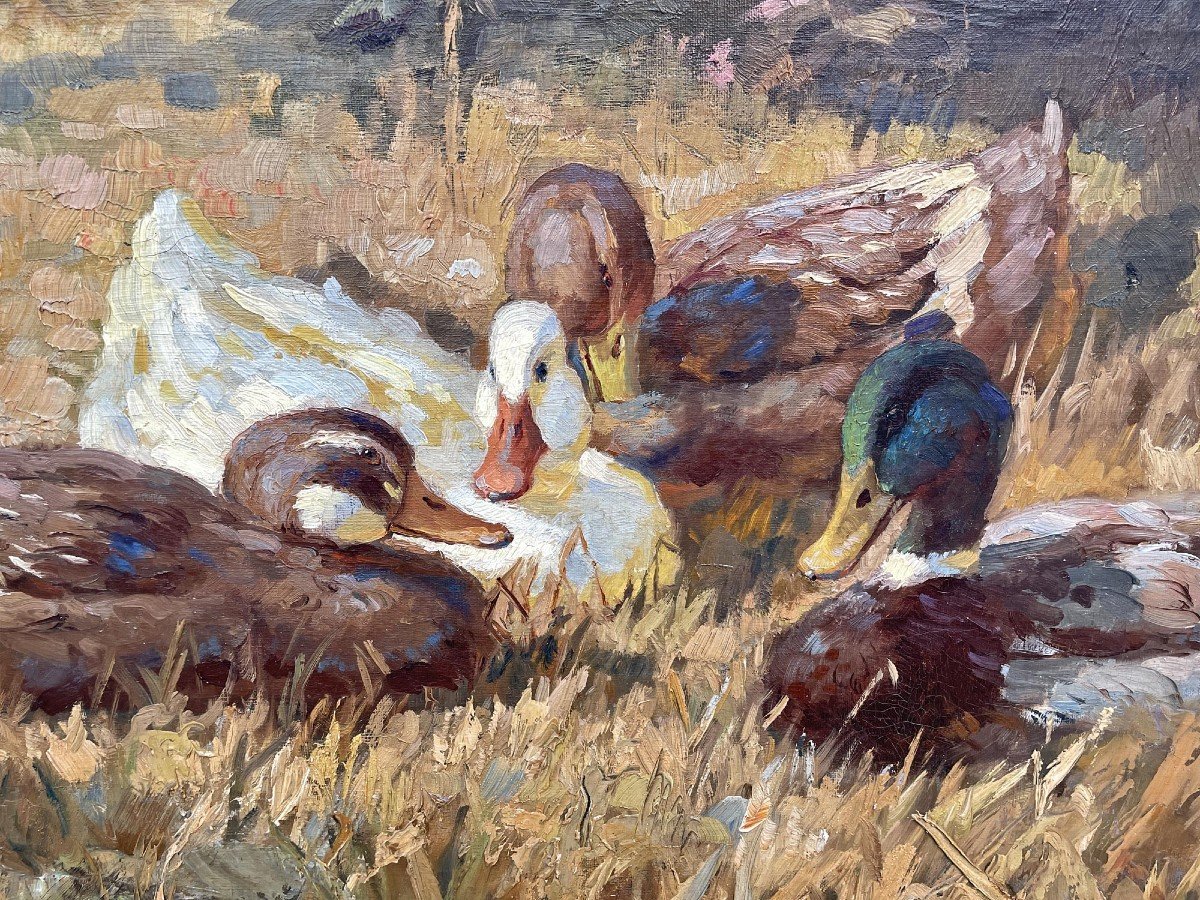
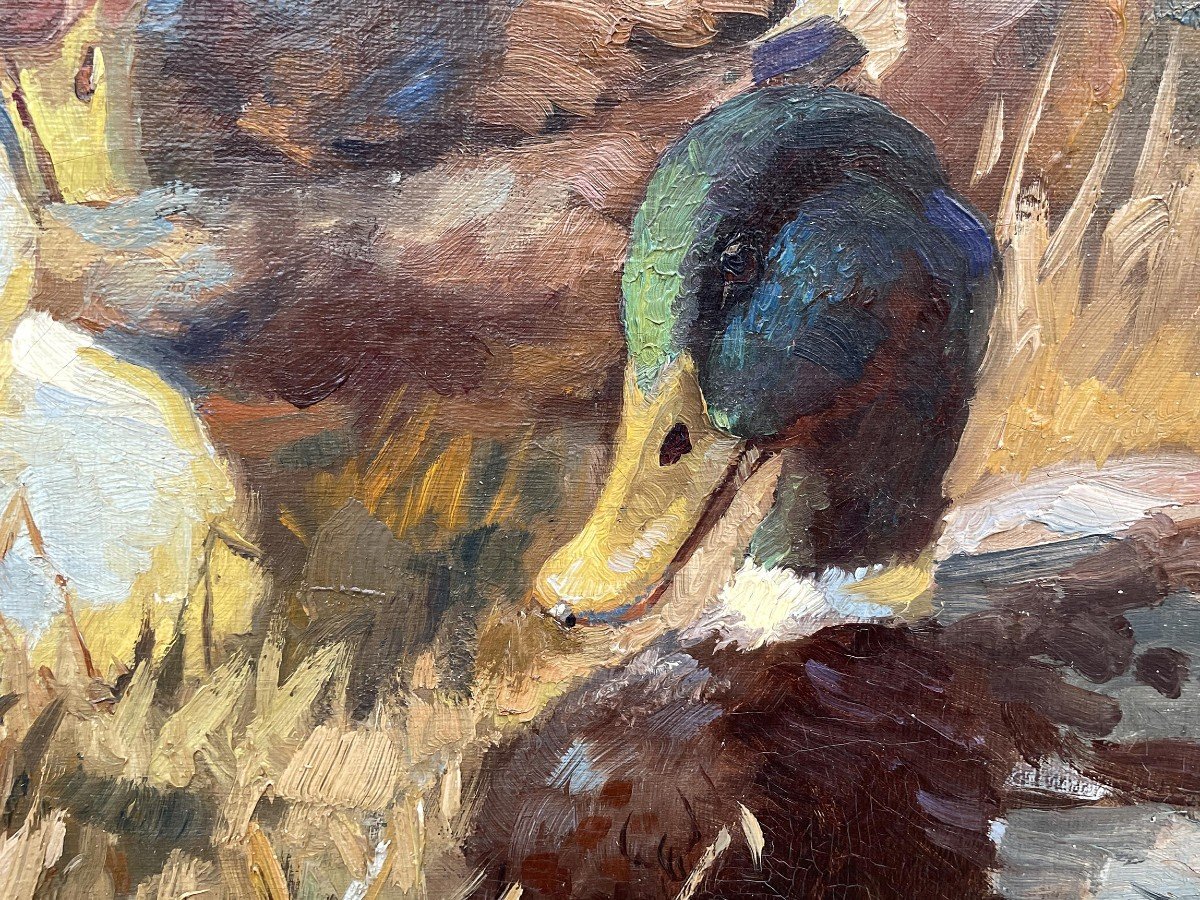
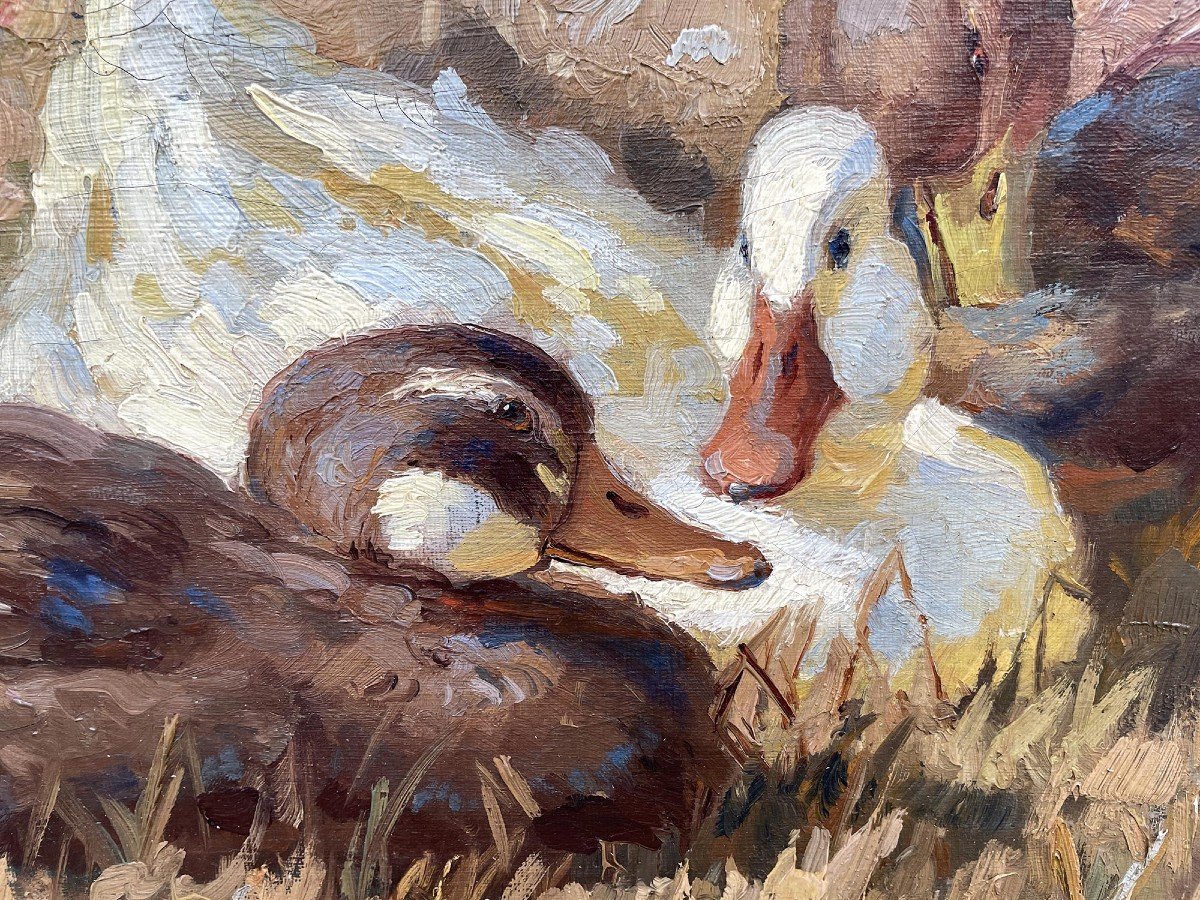
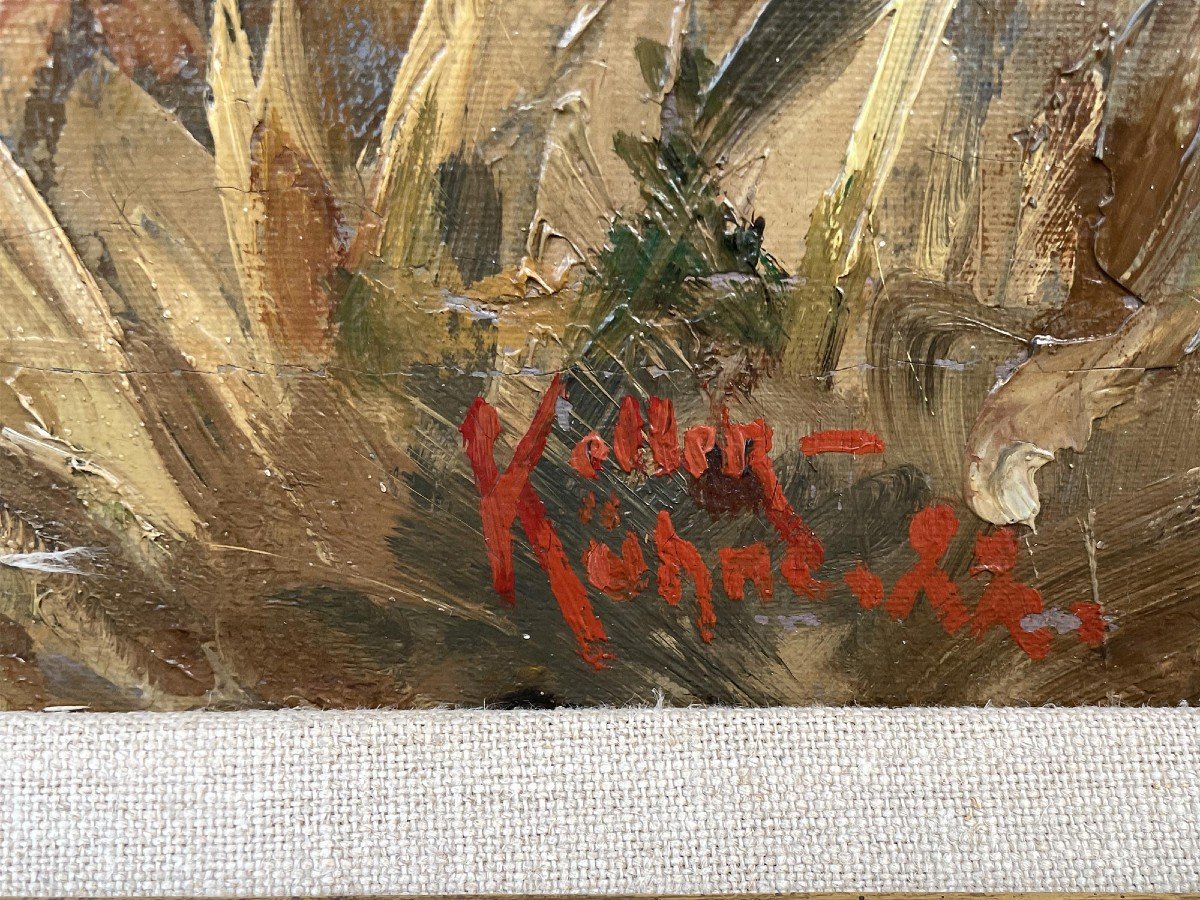

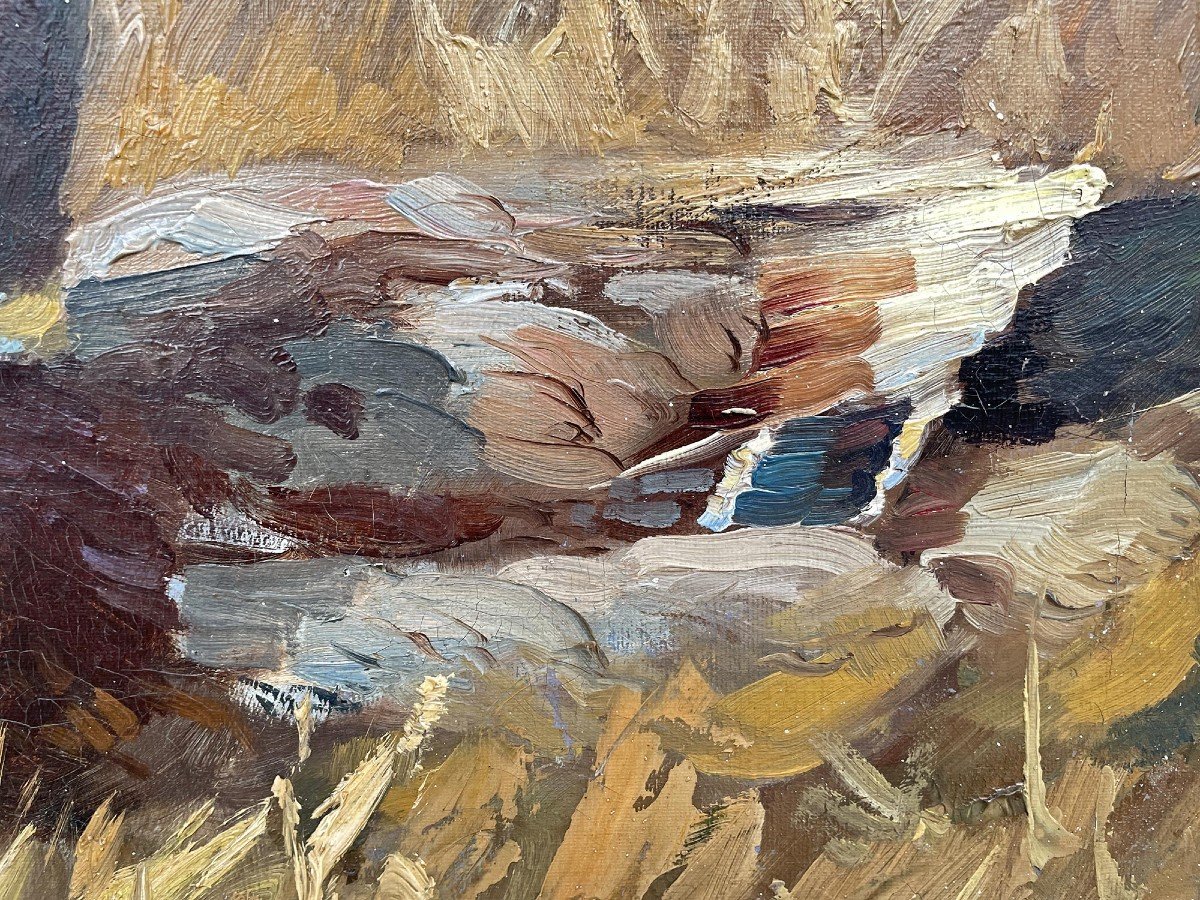
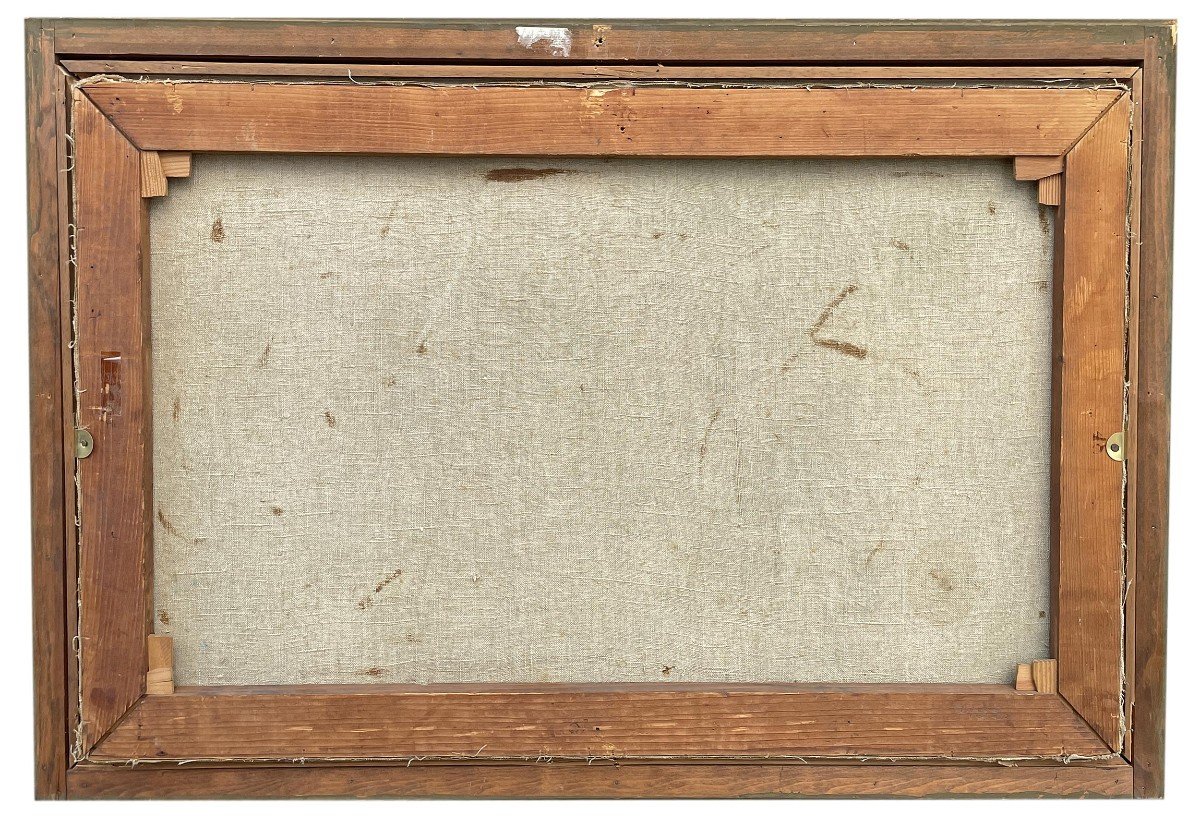




















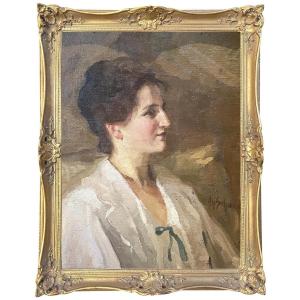


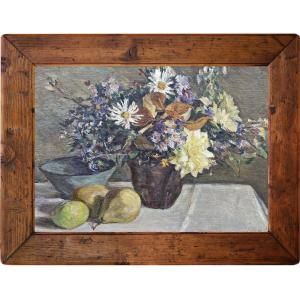



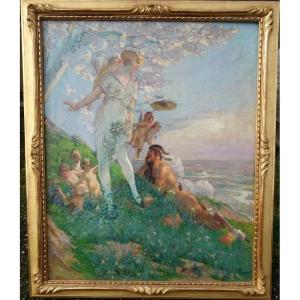


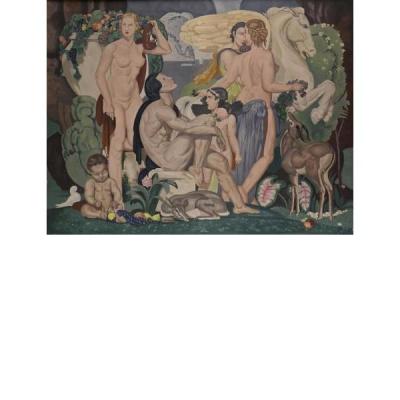
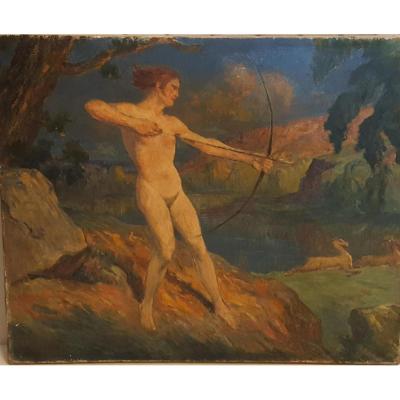



 Le Magazine de PROANTIC
Le Magazine de PROANTIC TRÉSORS Magazine
TRÉSORS Magazine Rivista Artiquariato
Rivista Artiquariato